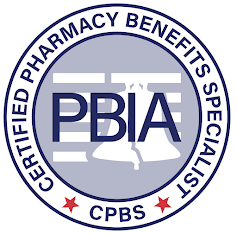Hospitals are dropping Medicare Advantage plans left and right and other notes from around the interweb:
- Hospitals are dropping Medicare Advantage plans left and right. Medicare Advantage provides health coverage to more than half of the nation’s seniors, but a growing number of hospitals and health systems nationwide are pushing back and dropping some or all contracts with the private plans altogether. Among the most cited reasons are excessive prior authorization denial rates and slow payments from insurers. Some systems have noted that most MA carriers have faced allegations of billing fraud from the federal government and are being probed by lawmakers over their high denial rates. “It’s become a game of delay, deny and not pay,” Chris Van Gorder, president, and CEO of San Diego-based Scripps Health, told Becker’s. “Providers are going to have to get out of full-risk capitation because it just doesn’t work — we’re the bottom of the food chain, and the food chain is not being fed.”
- PBMs Should Brace for a Copay Accumulator Program Shift. Starting in 2020, the Centers for Medicare & Medicaid Services (CMS) allowed insurers to use copay accumulators for brand-name drugs that have a suitable generic alternative. However, for plan year 2021, CMS changed the rules to permit copay accumulators for all drugs, regardless of generic availability. This broader rule was challenged in the D.C. Circuit Court and overturned. As a result, the 2020 regulation is back in effect, meaning copay accumulators can only be applied to brand drugs that have a medically appropriate generic equivalent.
- Plan Sponsors Have a Fiduciary Duty to Employees that Includes Scrutiny of PBM-Owned Rebate Aggregators. Drug manufacturer rebates can be a valuable tool for controlling the rising costs of prescription drugs. Most manufacturers offer a rebate program through which they agree to return a part of the drug’s list price to plans in exchange for access to the plans’ drug “formulary”. Rebates are intended to flow through to the plan sponsors and benefit patients, reducing their overall drug spend. The rebate process has been hijacked by PBMs and their sister-aggregators. PBMs utilize rebate aggregators to negotiate drug manufacturer rebates on behalf of the plans they administer. In 2022, just three PBMs along with their rebate aggregators, controlled 79 percent of the market. Some of the largest rebate aggregators include Zinc (owned by CVS Caremark), Ascent (owned by Express Scripts), and Emisar (owned by United Healthcare).
- Pharmacy Benefit Managers: History, Business Practices, Economics, and Policy. Pharmacy benefit managers evolved in parallel with the pharmaceutical manufacturing and health insurance industries. The evolution of the PBM industry has been characterized by horizontal and vertical integration and market concentration. The PBM provides key functions: formulary design, utilization management, price negotiation, pharmacy network formation, and mail order pharmacy services. Criticism of the PBM industry centers around the lack of competition, pricing, agency problems, and lack of transparency. Legislation to address these concerns has been introduced at the state and federal levels, but the potential for these policies to address concerns about PBMs is unknown and may be eclipsed by private sector responses.
